Malwarebytes Anti-Exploit available in Free, Premium, Business editions

Malwarebytes has announced the first full public release of Malwarebytes Anti-Exploit, a powerful tool which protects against many zero-day exploits. It’s now available in three editions.
A basic Free version shields some browsers (IE, Chrome, Firefox, Opera), their addons, and Java, on Windows XP or later.
Hackers try to exploit fear of Cryptolocker with spam campaign

Recent news stories, along with the UK National Crime Agency's warning that users only have two weeks to protect their computers, have raised fears about the impact of the GameOver Zeus malware and its cousin Cryptolocker.
It's not really surprising then that the bad guys are seeking to exploit these fears. Security company BullGuard has uncovered a major new spam campaign supposedly offering Cryptolocker decryption keys.
New anti-exploit tool aims to prevent your PC from getting infected
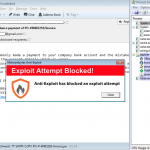
Normal antivirus software works by looking at signatures and behaviors to prevent or remove malware infections. However, many infections now stem from exploits in legitimate programs which means that it's possible for nasties to slip onto the system unnoticed.
A new Anti-Exploit tool from Malwarebytes released today is designed to protect against vulnerabilities in mass-market applications such as browsers, Java, document readers, media players and others.
PhraseExpress provides universal AutoCorrect and AutoText for Windows, unveils multiple improvements

Bartels Media GmbH has unveiled Phrase Express 10.1, a major update to its versatile tool for extending AutoText and AutoComplete to any Windows app. Version 10.1 contains a number of improvements and adds a new cancellation hotkey.
The tool, which is free for personal use and is also available in portable form, allows users to build a personal library of text snippets and phrases for quickly inserting into documents, forms and other windows.
XP users feel no great rush to upgrade
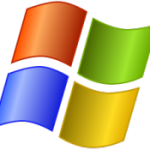
If Microsoft expected XP users to desert the aging OS once support officially came to an end, the tech giant will no doubt have been sorely disappointed. Although XP’s market share has fallen in the two months since it reached end of life, the 13 year old operating system remains hugely popular.
According to Net Applications, from March to May, XP lost just 2.42 percent market share, and is still to be found on over a quarter of all Windows systems. Windows 7 gained 1.29 percent in the same time period, to break the 50 percent barrier, and Windows 8.x increased its share by 1.34 percent for a not so grand total of 12.64 percent. Statista has put together a little graph showing how little end of support has changed XP’s popularity.
Symantec's cloud storage experiment fails completely -- Norton Zone set to close

While there’s certainly no shortage of cloud storage solutions to choose from, Norton Zone’s appeal -- on paper at least -- is the security it offers users. Content is encrypted when uploaded and stored in Symantec’s own secure data center, and the service automatically scans files for malware before they can be downloaded. As is fairly typical, you get 5GB of storage for free.
Or rather you did. Symantec has made the decision to discontinue Norton Zone and wind down support of the service over the next 30 to 60 days.
How to watch Apple's WWDC 2014 keynote speech live online (and what to expect)
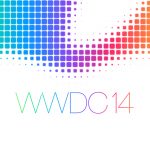
Apple's Worldwide Developer Conference kicks off today, with the big keynote speech scheduled for 10am PST/6pm BST.
Among the highlights we can expect to see OS X 10.10, which might, possibly, be called 'Yosemite' (the OS X banner showing at the Moscone Center in San Francisco has the famous California national park in the background), and iOS 8, plus new versions of existing hardware, and maybe a few surprises.
Microsoft details four future Internet Explorer features
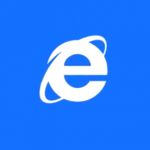
Microsoft is promising at least four brand new features inside the next release of Internet Explorer and fans of the browser could be treated to even more than that when the final product reaches the market.
The Redmond-based firm confirmed that it would definitely include Web Audio, Media Capture, ES6 Promises and HTTP/2 in the new version plus there is likely to be other features revealed closer to the release date.
Scribus adds image alignment script, refines PDF export options

Open-source, cross-platform desktop publishing package Scribus 1.4.4 has been released. Despite the seemingly minor version number, it includes a number of significant changes.
The new build -- also available in portable form -- adds support for exporting documents in the PDF/X-1a format. It also improves image handling, introduces a new image-alignment script and features a number of stability improvements.
Acer unveils Build Your Own Cloud (BYOC) Experience Center

Acer has opened its BYOC Experience Center in Aspire Park over in Taiwan, a place which is designed to showcase the firm's Build Your Own Cloud ecosystem and its usefulness to both individuals and business organizations.
This is all part of Acer's push into cloud territory, as it looks to diversify away from the PC hardware business which has been hit hard lately by a downturn in demand (as tablets have gathered much momentum).
Sony Xperia Z2 officially gets wireless charging

Wireless charging is a convenient alternative to the old-fashioned way of topping up the battery in a mobile device, the latter of which entails a cable connection to a PC or wall charger. Lay the device on a compatible charging plate, that is plugged in obviously, and it will start charging. It is not as fast as some would like it to be, as the amperage is not as high as what wall adapters deliver, but is considerably faster than what a USB connection outputs. And have I mentioned it is extremely convenient?
With a Nokia-branded wireless charging plate -- which is based on the popular Qi standard -- I can charge both my Lumia 920 and Google Nexus 7, without having to deal with wires laying around, worrying that I might trip over one at night. Even though the benefits are obvious, not many smartphone manufacturers have fully embraced the technology, only offering the feature through optional (read: expensive) accessories. Take Sony, for instance, which just now offers a way for Xperia Z2 owners to get their wireless charging fix.
LG G3 first impressions -- the experience is greater than the sum of its (awesome) parts

Android phones have become rather predictable. Year after year, we see specs increase and little else. In other words, the Android market has become stagnant. Even low-end phones are very good -- case in point, the Moto G. However, many consumers still want to have top of the line devices, so manufacturers keep pumping out flagships.
Today, I had the opportunity to attend the LG G3 event in New York City. Since I had already seen many of the leaked images, I was not expecting to be surprised. However, the company did surprise me by focusing on software and UI improvements in addition to the improved hardware. When I finally got my hands on the beautiful hardware, I surprised myself -- rather than focus on what the G3 hardware is, I focused on what it does.
Microsoft warns against XP update hack -- suggests users 'upgrade to Windows 8.1' instead
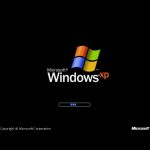
The hack I wrote about yesterday, that allows XP users to continue to receive security updates via the still-supported Windows Embedded POSReady 2009, was never going to get Microsoft’s blessing. Obviously it is a slightly unusual and risky way of cheating the system, even though it works.
ZDNet picked up on the story and asked Microsoft for a comment, and as you’d expect, the devices and services giant was happy to take the opportunity to suggest XP users just move on.
How to continue getting free security updates for Windows XP -- until 2019

Microsoft has stopped providing XP users with security updates, forcing them to either upgrade to another, newer operating system, or gamble with their safety. While the latest usage figures show that a large portion of users are moving away from XP, there’s still a sizable number of users who aren’t -- or can’t.
If you’re an XP user, or know some XP users, there’s a trick which makes it possible to receive security updates for the aging OS for another five years -- right up until April 2019.
Apple's SSL fail -- allows certificate to expire, scares OS X users

While I am mostly a Windows and Linux user, I also run a Hackintosh. I do this for a couple of reasons -- partly curiosity, but mostly I just want to be knowledgeable about all operating systems. So, periodically I will boot into my OS X SSD and play around. Today, I decided to check for updates and received the below scary message. At first I thought I was hacked or compromised. After some Googling however, it seems I am not alone and it is not limited to Hackintoshes. The problem is on Apple's end and is an enormous fail.
"An Error has occurred.The certificate for this server is invalid. You might be connecting to a server that is pretending to be 'swscan.apple.com' which could put your confidential information at risk". My confidential information at risk? Oh my!
Recent Headlines
Most Commented Stories
© 1998-2024 BetaNews, Inc. All Rights Reserved. Privacy Policy - Cookie Policy.